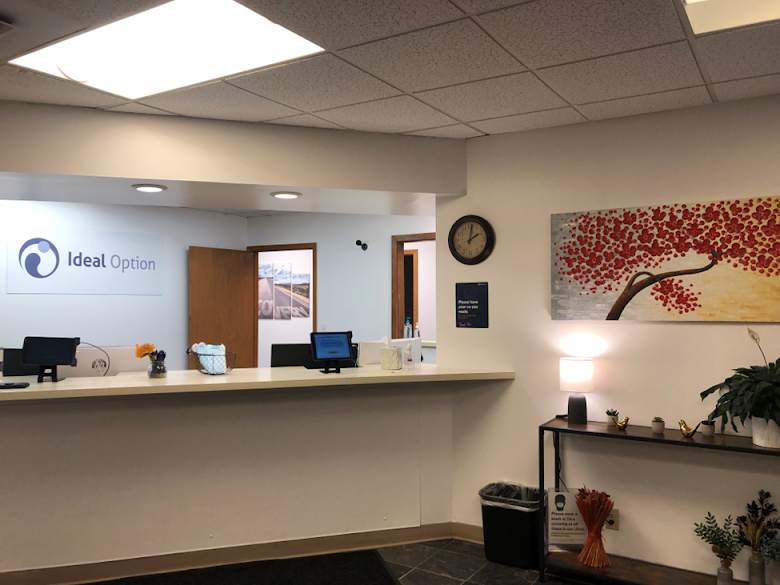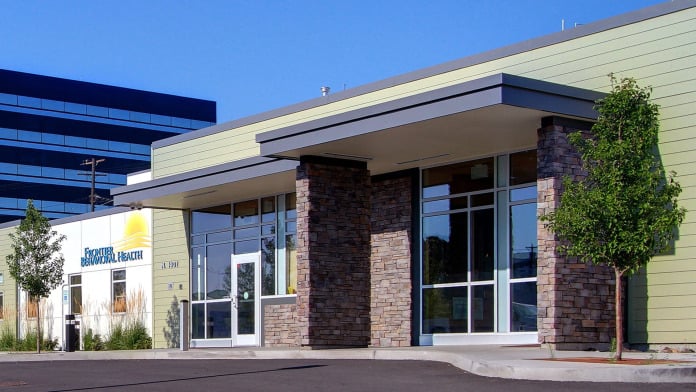Spokane’s crime problem thats going on in 2025 is places like this. The Women’s and men’s centers they run are just a daycare!!!! It’s a joke. Staff members are unprofessional. I don’t even know if they really have degrees. They just want a paycheck. They aren’ ...
About ABHS American Behavioral Health Systems – Spokane
ABHS, American Behavioral Health Systems, is a mental health facility located in Spokane, Washington. They treat people for many different behavioral health issues. They also treat people who struggle with a mental health condition and substance use disorder (SUD) at the same time.
They accept Native American, Title 19, private insurance, and Apple Health. They also take Department of Corrections insurance as well as self-pay.
A Full Assessment
You can apply for treatment on the company website and then come in for a full assessment.
If you have drugs in your system, you will detox before you begin rehab. They have a co-ed facility and two gender specific facilities in Spokane.
Daily Life
You will have to turn in your cell phone and other electronics to the staff when you check in for your stay. One thing I like about this place is that you get to use your cell phone at night. They also allow family visits on the weekend, so you will not feel cut off from the outside world.
They have a fitness center on site, so you can get your exercise. A staff dietitian can teach you how to eat properly.
Treatment Offered
If you need to detox, you will do so in a facility staffed with medical professionals. They will monitor your vital signs all day and provide you with medication if you need it for discomfort.
Treatment can last anywhere from 15 to 180 days. The intensive inpatient program includes community meetings, group therapy, and individual therapy. Clients with dual diagnoses will have special group sessions.
I like that the company participates in Mental Health Court. This is a state-run program for people who have committed crimes directly related to SUD.
Facility Overview
Latest Reviews
Rehab Score
Gallery
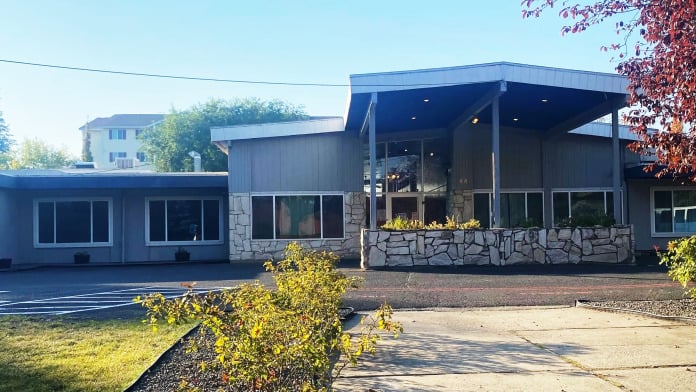
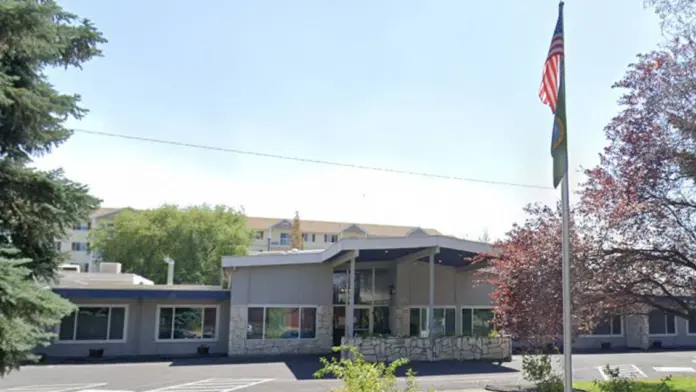
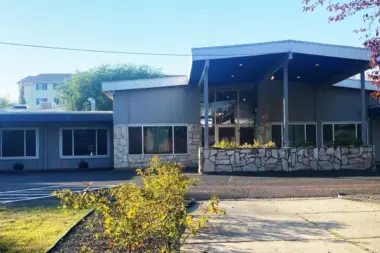
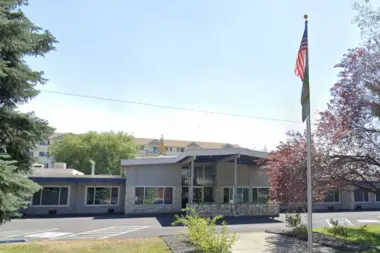
Accepted Insurance




Other Forms of Payment
Medicaid is a state based program that helps lower-income individuals and families pay for healthcare. Medicaid covers addiction treatment so those enrolled can use their coverage to pay for rehab. When a program accepts Medicaid the client often pays very little or nothing out of their own pocket.
Private insurance refers to any kind of healthcare coverage that isn't from the state or federal government. This includes individual and family plans offered by an employer or purchased from the Insurance Marketplace. Every plan will have different requirements and out of pocket costs so be sure to get the full details before you start treatment.
Self-pay involves paying for treatment out of your own pocket. You can use savings or credit, get a personal loan, or receive help from family and friends to fund your treatment. If you don't have insurance or your insurance plan doesn't cover a specific program, self-pay can help ensure you still get the care you need.
Financial aid can take many forms. Centers may have grants or scholarships available to clients who meet eligibility requirements. Programs that receive SAMHSA grants may have financial aid available for those who need treatment as well. Grants and scholarships can help you pai for treatment without having to repay.
Medicare is a federal program that provides health insurance for those 65 and older. It also serves people under 65 with chronic and disabling health challenges. To use Medicare for addiction treatment you need to find a program that accepts Medicare and is in network with your plan. Out of pocket costs and preauthorization requirements vary, so always check with your provider.
Addiction Treatments
Levels of Care
The outpatient services include intensive outpatient programs that utilize therapies like cognitive behavioral therapy, emotional interviewing, and psychoeducation. These programs are designed to support ongoing addiction recovery while allowing clients to maintain daily responsibilities.
Inpatient treatment at American Behavioral Health features 24-hour care with therapies such as emotional interviewing, group counseling, and case management. The program is ideal for those needing a structured environment to begin their recovery journey in Spokane.
The intensive outpatient program offers structured therapy sessions, including cognitive behavioral therapy and psychoeducation, to support addiction recovery. This flexible treatment option helps clients develop coping skills while living at home near Spokane.
American Behavioral Health provides aftercare planning and relapse prevention programs to ensure long-term success. Their dedicated staff supports clients transitioning from residential treatment, emphasizing continued counseling and recovery coaching in Spokane.
The 12-Step program is integrated into the residential treatment, offering clients peer support and structured recovery tools. This approach helps individuals build a foundation for sobriety while addressing co-occurring disorders in Spokane’s treatment environment.
The facility offers medically assisted detox to safely manage withdrawal symptoms from substances like alcohol, opioids, and benzodiazepines. With 24-hour nursing care and physician supervision, detox is the first step toward recovery in a comfortable setting near Spokane.
Treatments
American Behavioral Health Systems offers comprehensive alcohol addiction treatment through intensive residential programs that utilize therapies like cognitive behavioral therapy, psychoeducation, and group counseling. Well-trained clinicians provide personalized support to help clients build a strong foundation for recovery in Spokane, Washington.
The facility provides drug addiction treatment within an intensive residential setting, incorporating therapeutic community, emotional interviewing, and individual counseling. Experienced clinicians support clients in developing coping skills and empowering themselves for lasting recovery from substance dependence.
Specialized opioid addiction treatment is available through American Behavioral Health’s residential programs, which include medication management, mental health assessment, and case management. The program emphasizes building recovery skills in a supportive environment near Spokane, Washington.
American Behavioral Health offers tailored substance abuse treatment programs that address co-occurring mental health and addiction issues. Their approach combines psychoeducation, group therapy, and case management to support clients in achieving sustainable recovery.
Programs
American Behavioral Health’s adult residential treatment program provides long-term care with therapies such as psychoeducation, emotional interviewing, and case management. The program supports adults in developing skills for sustained addiction recovery in Spokane.
The young adult residential program offers tailored therapies, including cognitive behavioral therapy and psychoeducation, to help young clients build coping mechanisms. With a capacity of over 550 beds, the program supports youth in overcoming substance dependence and developing resilience.
Clinical Services
Cognitive Behavioral Therapy (CBT) is a therapy modality that focuses on the relationship between one's thoughts, feelings, and behaviors. It is used to establish and allow for healthy responses to thoughts and feelings (instead of unhealthy responses, like using drugs or alcohol). CBT has been proven effective for recovering addicts of all kinds, and is used to strengthen a patient's own self-awareness and ability to self-regulate. CBT allows individuals to monitor their own emotional state, become more adept at communicating with others, and manage stress without needing to engage in substance abuse.
Dialectical Behavior Therapy (DBT) is a modified form of Cognitive Behavioral Therapy (CBT), a treatment designed to help people understand and ultimately affect the relationship between their thoughts, feelings, and behaviors. DBT is often used for individuals who struggle with self-harm behaviors, such as self-mutilation (cutting) and suicidal thoughts, urges, or attempts. It has been proven clinically effective for those who struggle with out-of-control emotions and mental health illnesses like Borderline Personality Disorder.
Group therapy is any therapeutic work that happens in a group (not one-on-one). There are a number of different group therapy modalities, including support groups, experiential therapy, psycho-education, and more. Group therapy involves treatment as well as processing interaction between group members.
In individual therapy, a patient meets one-on-one with a trained psychologist or counselor. Therapy is a pivotal part of effective substance abuse treatment, as it often covers root causes of addiction, including challenges faced by the patient in their social, family, and work/school life.
Motivational Interviewing (MI) is a clinical approach to helping people with substance abuse issues and other conditions shift behavior in positive ways. It is more goal-oriented than traditional psychotherapy, as MI counselors directly attempt to get clients to consider making behavioral change (rather than wait for them to come to conclusions themselves). Its primary purpose is to resolve ambivalence and help clients become able to make healthy choices freely.
Amenities
-
Private Transportation
-
Residential Setting
-
Private Rooms
Accreditations

The Commission on Accreditation of Rehabilitation Facilities (CARF) is a non-profit organization that specifically accredits rehab organizations. Founded in 1966, CARF's, mission is to help service providers like rehab facilities maintain high standards of care.
CARF Accreditation: Yes
Contact Information
44 East Cozza Drive
Spokane, WA 99208




